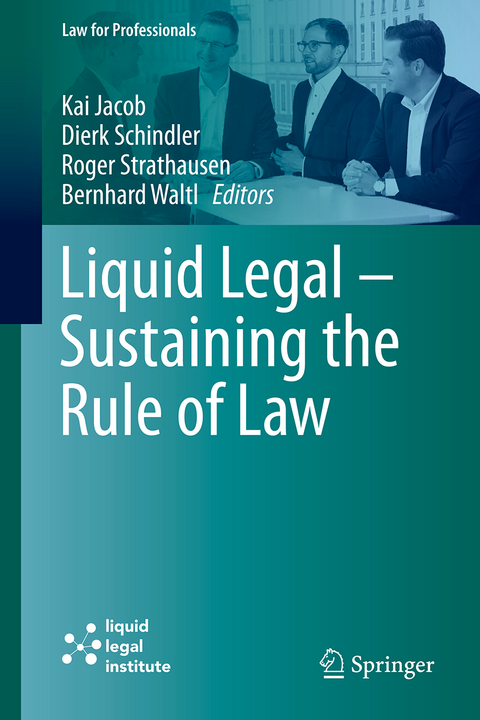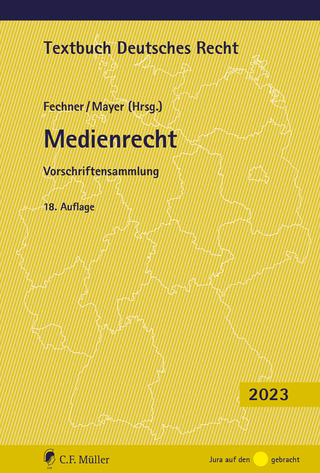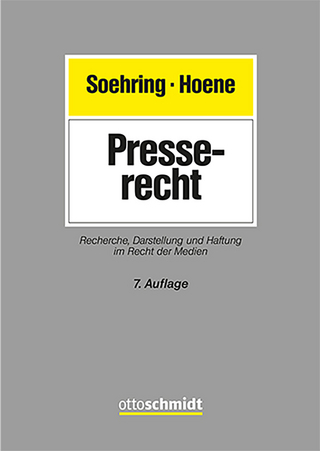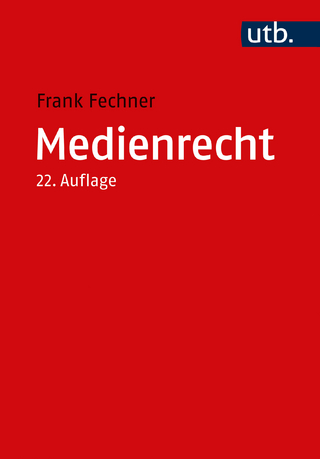
Liquid Legal – Sustaining the Rule of Law
Springer International Publishing (Verlag)
978-3-031-78595-5 (ISBN)
- Noch nicht erschienen - erscheint am 10.02.2025
- Versandkostenfrei innerhalb Deutschlands
- Auch auf Rechnung
- Verfügbarkeit in der Filiale vor Ort prüfen
- Artikel merken
This book is a comprehensive guide for legal, business, and technology professionals seeking to understand the intersection of sustainability and emerging technologies in the legal ecosystem. The book takes a critical look at the role of AI and cloud technologies in promoting sustainable legal practices and addresses the potential risks and ethical considerations associated with these technologies. The book explores the concept of sustainability in a legal context, highlighting the need for the legal system to sustain itself in order to sustain society at large. The chapters cover a wide range of topics, from the use of generative AI and open legal data to promote access to justice, to the codification of corporate cultural intelligence to mitigate risks associated with AI. The book also addresses the potential dark side of AI in the legal market, including the risks of autonomy, liability, legal, and ethical issues that arise when using AI in legal decision-making processes. The authors explore the need for sustainable digital transformation as a prerequisite for sustainable law, highlighting the importance of understanding the ethical and legal implications of AI in the legal system.
Kai Jacob is the co-founder and co-chair of the Liquid Legal Institute, a think tank for the transformation of the legal market based in Munich. He is also a partner in Legal Operations & Transformation Services (LOTS) at KPMG Law since 2021. Kai is involved in various projects and initiatives concerning agile working in the legal department, the health of the legal profession and the future of legal managed services. He publishes regularly on these and other topics in professional journals and other publications. Prior to joining KPMG Law, Kai was a partner at Deloitte Legal and previously spent many years at SAP SE. Kai Jacob was admitted to the bar in 2004 and studied law in Marburg, Göttingen and Osnabrück.
Dierk Schindler is the co-founder of the Liquid Legal Institute and serves as Co-CEO, together with Kai Jacob and Bernhard Waltl. He is author and editor of numerous publications on innovation and transformation in the legal profession, most notably the three previous volumes of the book-series "Liquid Legal" in 2017, 2020 and 2022. In 2019, Dierk joined Robert BOSCH GmbH as their Vice President Corporate Legal Services, Mobility, Supply Chain and Logistics. He drives the adoption of Agile practices and the digital transformation of the legal team at large. Prior to BOSCH, Dierk has spent 14 years with NetApp Inc., where he built the EMEA Legal Team, established the Deal Management function, and implemented the Global Legal Shared Services Team. He speaks and teaches on Innovation and Digital Business Law. Dierk is a certified lawyer, took his doctorate degree from Augsburg University, Germany, and his Master of International Law from Lund University, Sweden.
Roger Strathausen is co-founder of the Liquid Legal Institute. Roger accompanies digital transformation of the legal industry. As a digital leadership expert, Roger specializes in helping companies capitalize on the value of digitalization, bringing to bear decades of experience in the high-tech and software industry. Digitalization is not the answer to all problems, but its potential for disrupting traditional business models certainly warrants a closer look at the status quo.
Bernhard Waltl is also co-founder and co-CEO of the LLI and has been an academic researcher and designs, develops, and evaluates technology and methods transforming the future of law. In 2017 he was invited from the Stanford University CodeX: Center for Legal Informatics where he conducted research on text mining and artificial intelligence in the legal domain. He is part of an international network of leading researchers from computer science, informatics, and legal science, and organizes scientific workshops at relevant conferences. He successfully had many projects with industry partners on text mining for the legal domain and also consulting projects for governments on algorithmic-decision-making.
The Reset Moment by Mark A. Cohen and Dierk Schindler.- Can Artificial Intelligence Save the Rule of Law? by Thomas D. Barton.- Towards Access to Justice through Generative AI and Open Legal Data: Between Utopia and Dystopia by Marcel Hajd.- OLRAS: Closing the E-Justice Gap Faced By "Lawyer-less" Micro-Entities When They Are Negotiating Commercial Contracts Against Larger "Lawyered-Up" Parties by Stuart Weinstein.- AI in the Legal Market: The Dark Side of the Moon by Bruno Mascello.- Digital Twins of Law. Embracing Complexity by Anita Lamprecht.- Codifying Corporate Cultural Intelligence to Mitigate Culture Risk in AI: UK Insurance as a Case in Point by Shân M. Millie and Tatiana Caldas-Löttiger.- Decoding Public and Private AI Legal Tech: Autonomy, Liability, Legal and Ethical Risks by Erion Murati.- Evaluating how the AI Act affects Systems in the Pharma and BioTech Sector by Marco Rau, Sharon Naomi Reichl and Robert Müller.- If a Machine, a Terminator, Can Learn the Value of Human Life, Maybe We Can too by Barbara Chomika.- AI Is Here. But Is the Legal Profession Ready for It? by Ulf Marhenke.- Sustainable Digital Transformation as a Pre-requisite for Sustainable Law by Bernhard Waltl.- Legal Prompt Engineering and How It Will Change the Way Lawyers Work by Philipp Müller-Peltzer, Valentin Tanczik and Alexander Holz.- The (Re)making of a Modern Lawyer - an In-house Counsel's Reinvention Journey by Robert Dilworth.
| Erscheint lt. Verlag | 10.2.2025 |
|---|---|
| Reihe/Serie | Law for Professionals |
| Zusatzinfo | Approx. 350 p. |
| Verlagsort | Cham |
| Sprache | englisch |
| Maße | 155 x 235 mm |
| Themenwelt | Recht / Steuern ► Allgemeines / Lexika |
| Recht / Steuern ► Öffentliches Recht | |
| Recht / Steuern ► Privatrecht / Bürgerliches Recht ► Medienrecht | |
| Schlagworte | Access to Justice • AI Act • Artificial Intelligence • business of law • E-Justice • Innovation • LegalTech • Legal Transformation • Rule of Law • sustainability |
| ISBN-10 | 3-031-78595-9 / 3031785959 |
| ISBN-13 | 978-3-031-78595-5 / 9783031785955 |
| Zustand | Neuware |
| Haben Sie eine Frage zum Produkt? |
aus dem Bereich


